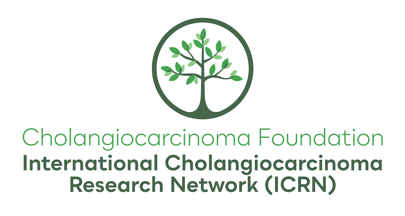Monica Niger, MD

| Name | |
| Monica Niger MD | |
| Organization | |
| Fondazione IRCCS Istituto Nazionale dei Tumori di Milano | |
| Can you tell us a bit about yourself? | |
| I am a GI Medical Oncologist at the National Cancer Institute of Milan, Italy, and I focus mostly on biliary tract cancers and pancreatic cancers. I studied to become a Medical Oncologist in Milan, where I had the opportunity to develop my interest in cancer research with the help of wonderful mentors and a great team that is like a second family to me. I also had the incredible chance of spending a year at Yale University, where I worked on the effects of oncometabolites on the DNA repair pathways both in the lab and in the clinic. I will be forever grateful to my mentors at Yale, who taught me a great deal and gave me the opportunity to help them directly translating their lab findings in a clinical trial, in a protocol that I wrote during the 2017 ASCO/AACR Methods in Clinical Cancer Research Workshop. I now work with a small but highly motivated team of young oncologists who focused their clinical and research interest on biliopancreatic cancers. |
|
| Can you share one or two of your specific research interests? | |
| Our GI Oncology Team has a long-lasting experience in the setting of GI cancers, including biliary tract cancers, since our Institution is a big referral center and it has a leading role in Italian oncology networks. We focus mainly on: translational research, integration of ctDNA and CTC approaches in clinic, molecular tumor profiling (with a focused molecular tumor board). I am also very interested in developing academic clinical trials for biliary tract cancer | |
| Why did you decide to specialize in hepatobiliary cancers? | |
| Biliary Tract cancers have been in some way always part of my training and career. In a totally casual (and fortunate) way, when I was still a Medical School student, I was assigned to the team working on a clinical trial for patients affected by biliary tract cancers and treated with second-line mTOR inhibitor. That trial became the main topic of my graduation thesis and it started to develop my interest toward GI cancers and, specifically, biliary tract cancers. Then, during my fellowship, I started to actually see and treat more and more of these patients in clinic and I realized how much more there was to learn and do for them. As my mentor used to say, "there is no real research until you wait for the next patient and you ask yourself how you can improve their life". That happened very often with patients affected by biliary tract cancers, which are a real unmet need. Finally, during my year at Yale University, I became very passionate about studying biliary tract cancers both from the preclinical and clinical point of view and I decided that it would be my main focus. | |
| Can you describe one of the unforgettable moments in your patients care or research that has impacted your career? | |
| It's difficult to highlight a single moment, since being an oncologist is full of intense emotions. It's always a great emotion when I am able to offer my patients a new opportunity, either due to clinical trials or tumor profiling. Also, as a doctor, I keep learning from my patients and their families, who show me on a daily basis how to cope with good and bad news. There was a patient, a young male who was diagnosed with Cholangiocarcinoma when he was 35: he had a long history, full of aggressive surgeries and innovative treatments, but in the end, when I just couldn't find another option for him, he kept saying "the only important thing is that you keep taking care of me. If you take care of people you always win". That's something I will never forget and that will guide me in my career. | |
| Can you tell us one thing collaboration with colleagues could accomplish that you could not accomplish on your own? | |
| I am deeply motivated to pursue high quality research for biliary tract cancers and I think that the key to this purpose is multicenter and international collaboration. Biliary tract cancer is a complex group of diseases and it's very important to share our experiences, data and ideas to make sure that a research hypothesis can be fully studied and, ultimately, give some answers to our patients. As such, I am also part of the EORTC hepatobiliary/NET task force and of ENS-CCA. | |
| If you had access to one resource that would move your research forward, what would that resource be? | |
| More funding for investigator initiated trials. | |
| How did you learn about the Cholangiocarcinoma Foundation? | |
| I learned about CCF when I was a fellow and I was working at Yale University. I think it has the great merit of enhancing research and helping investigators while keeping the patients' interests always as the main focus. It is really the joint between the two worlds and I would love for the foundations now starting in Italy to grow into something like CCF. | |
| Can you tell us why you became a member of the ICRN? | |
| To enhance international collaboration | |
